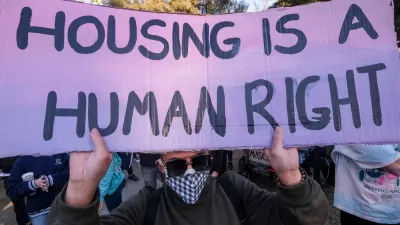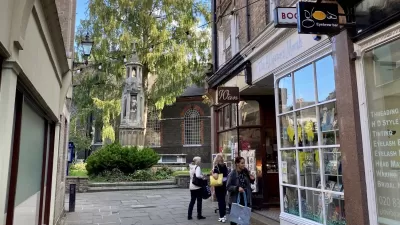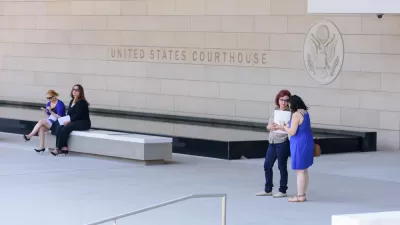As the Occupy Movement, Gezi Park protests, and everyday urban reclamation projects demonstrate, power and politics are embedded in place. As public spaces disappear, reclaiming the commons becomes increasingly important, say Leo Hollis.
"Henri Lefebvre, the French Marxist philosopher (and most famous taxi driver in Paris), observed in the late 1960s that there are no neutral places in the city; that the different threads of power find their way into every crack of the metropolis, constructing a cartography of exclusions and barriers," writes Hollis. "Within this political perspective, the people have a common right to utilise city space without restriction."
"Through violent and defiant protests, provocative performances, citizen action, even unsolicited horticulture, the battle for civic space continues to reinvent itself. Sometimes, the action starts in reaction to the state. Other times, it kicks off because the powers-that-be are too slow to react to events, and local residents or campaigners take matters into their own hands, taking the urban domain to be a common realm rather than ‘someone else’s problem’."
"Reclamation of the city begins with the realisation that ‘that’ place, whatever its problems, is in fact ‘our’ place. By reclaiming it, we might actually find that we possess the solution, and in the process, we might just change ourselves."
FULL STORY: Cities belong to us

Planetizen Federal Action Tracker
A weekly monitor of how Trump’s orders and actions are impacting planners and planning in America.

Maui's Vacation Rental Debate Turns Ugly
Verbal attacks, misinformation campaigns and fistfights plague a high-stakes debate to convert thousands of vacation rentals into long-term housing.

Restaurant Patios Were a Pandemic Win — Why Were They so Hard to Keep?
Social distancing requirements and changes in travel patterns prompted cities to pilot new uses for street and sidewalk space. Then it got complicated.

In California Battle of Housing vs. Environment, Housing Just Won
A new state law significantly limits the power of CEQA, an environmental review law that served as a powerful tool for blocking new development.

Boulder Eliminates Parking Minimums Citywide
Officials estimate the cost of building a single underground parking space at up to $100,000.

Orange County, Florida Adopts Largest US “Sprawl Repair” Code
The ‘Orange Code’ seeks to rectify decades of sprawl-inducing, car-oriented development.
Urban Design for Planners 1: Software Tools
This six-course series explores essential urban design concepts using open source software and equips planners with the tools they need to participate fully in the urban design process.
Planning for Universal Design
Learn the tools for implementing Universal Design in planning regulations.
Heyer Gruel & Associates PA
JM Goldson LLC
Custer County Colorado
City of Camden Redevelopment Agency
City of Astoria
Transportation Research & Education Center (TREC) at Portland State University
Jefferson Parish Government
Camden Redevelopment Agency
City of Claremont





























